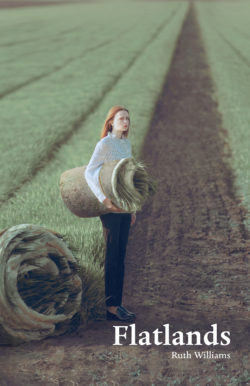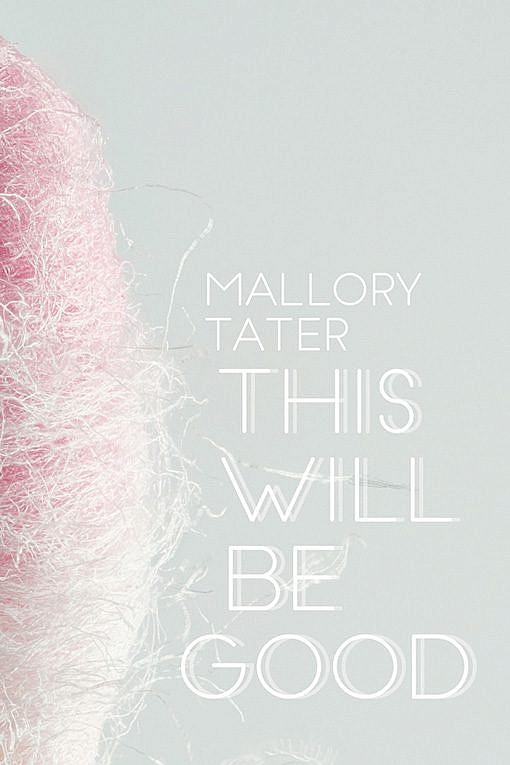Chaos Theory. Christopher Buckley. A Plume Edition Book. An imprint of MadHat Press. Asheville, North Carolina. 2018.

If Chaos Theory were only the first title poem, as illuminating as anything Blake hammered out, well, Today's book of poetry would be satisfied. More than. But Christopher Buckley has a multitude of universes on offer.
My buddy David Clewell, former Poet Laureate of Missouri, and Grand Daddy of the Knowledge, will stand up and cheer when he gets his hands on this B.B.Q. Make no mistake, these poems are steeped in mystery and marinated in some freaky source of wisdom. Christopher Buckley might be the craziest sumbitch in American poetry, he also might be the Campbell McGrath/Albert Goldbarth hardball link to a new reality.
All Today's book of poetry knows is that Buckley is smoking. Today's book of poetry looked at Buckley's Star Journal - Selected Poems back in March of 2017. Buckley poetry-bombed our heart. You can see that blog/review here:
VII. Fractals
Every great and deep difficulty bears in itself its own solution.
It forces us to change our thinking in order to find it.
—Niels Bohr
A coastline, if measured down to its least irregularity,
tends toward infinite length, as do snow flakes. Clouds
or coastlines, no matter how close or far away we get,
the basic pattern, the surface and volume, repeat
ad infinitum...
Cloud or cauliflower, rough, broken
geometric shapes have an area that is finite, but
a perimeter that is not.
It's a short walk from there
to Thomas Aquinas and Co., First Cause and effect,
and an intellectual trail of consecrated bread crumbs
back to a source we reflect.
Computers came along
and we can enumerate all the patterned variations
in nature—lightning bolts, river networks, broccoli,
the branching of the circulatory system, pine cones
and ferns.
Right now, someone is calculating the connection
between fractals and leaves in order to estimate how much
CO2 there is in trees, to help the environment with carbon
emission control so we might go on breathing and
piecing things together.
Jackson Pollock's painting
appear to be composed of chaotic drippings and splatters,
but computers have mapped recursive patterns in the work;
high voltage has been trapped in an acrylic block, repeating
the bronchial patterns of trees.
Star clusters form
paisley patterns, and patterns repeat in the wobbly
orbits of satellites in the solar system, in weather,
economics, earthquakes and plate tectonics, and in
the mathematical model of eye-tracking disorders
among schizophrenics.
Our universe could be a bubble
on an ocean of bubbles; a nearby universe might have Al Gore
as president and Elvis still singing in Las Vegas?
Just like
the currents of the ocean, the brain itself might be organized
according to the laws of chaos—enfolded labyrinths, invisible
synapatic lingua franca, its grey death-mask mosaic
of temporary matter, the incremental and incidental tiles,
fragments that replicate, accumulate, and account for us
in every particular, and then are dispersed into the burning
dust fusing into the stars, into the silence that fills
every unaccounted for corner of the dark.
💫💫💫
"Like the wind, like the dust." Such playful wisdom, such informed glee. Buckley has a big tool box and he digs into it. It's clear to us that Buckley is an old pro.
Today's book of poetry recently visited an old friend, a painter. His house was literally ablaze with art, paintings, sculptures, pottery, much of it his own, the rest by his friends and fellow artists. This man, Tom Campbell, is old, like me, yet his home sings with a vibrancy of intellect, hope and discovery — and that is exactly what Today's book of poetry feels when reading Christopher Buckley's Chaos Theory.
Buckley is warm and charming, hot and sharp. Buckley recognizes the patterns in things, challenges us with the physics of emotion and shares his astonishment and wonder. He imagines big; imagine a God particle.
Parallel Universes
Recent research has indicated the possibility of the gravitational pull of other
universes on ours.
—Wikipedia
Einstein didn't live long enough
to work out the Theory of Everything,
the exact mileage to the immense...
but if parallel universes are the case,
he's out there in the stars still
putting the pieces together
even though Max Planck's study
of radiation suggested divergent laws
operating beneath the floorboards
of gravity and light...
Now
they've turned up cosmic bruises—
4 circular patterns in the microwave
background radiation—evidence
that our universe has crashed
into others... One soap bubble
rubs against another and
you have a foam of universes,
a mathematical crash and run-out
to the other side of the end of anything
you now have on hand... almost
endless permutations until you arrive
at a duplicate of our own
"Goldilocks zone" habitable planet!?
More or less.
It could vary by a micron
or two—the tiniest sub-atomic backfire
or jitter of an electron or quark
and scads of different outcomes,
though cosmic strings vibrate
essentially as Parmenides set it down
in his poem about the music of the spheres,
leaving out the north star as the still point
of the turning earth of course....
Thus
Elvis is still doing TV Spectaculars
from Hawaii; Al Gore was re-elected,
Rick got on that plane with Ilsa,
everyone in the middle east is sharing
pita bread and baba ganoush with his neighbor,
and somewhere on a stage Burns & Allen
are taking a bow: Say Goodnight, Gracie!
There's an even chance that communism
did not collapse, and instead of making reservations
at that French/Bulgarian fusion bistro,
you're eyeing the two potatoes and shriveled bit
of beet root left in the shop—some guy selling
lamp shades out the back....
Sergei Krikalev,
Russian cosmonaut who flew six space missions,
could well head transportation for the EU.
We're here on condition that everything occurs
within the parenthesis of time,
within the end-stopped tributaries
to a sea, a great blind quantum scramble
where we arrive too late to the table
to translate the oscillating patterns and
packets of lights.
With every veneration
of my breath my cells are imminently obliged
to oblivion. You choose one god
or another, but religion is a trial,
an excuse to feel good about the fact
that you might be dead soon,
that, before you know it,
all your atoms will be headed
somewhere without you.
💫💫💫
In Buckley's world there are other worlds and for all we know; Elvis is still dancing in one of them. Beautiful.
Our morning read was another doozy, as our old pal, poet and painter, Dennis Tourbin used to say. Milo, our head technician, took a real shine to Mr. Buckley, he was still revved up from reading Star Journal - Selected Poems. Milo said that it was like reading poetically about science and having morality/mortality/God dropped right into the middle of the conversation.
Christopher Buckley reminds us all of what poetry can do. These conversations Buckley is having between himself and universe are worth listening in on.
On the Patio, after Reading Democritus
Nothing exists except atoms and empty space; everything else is opinion.
—Democritus
I pour a little Absolut,
as clear as the glass
that holds it, clear as the soul
which Democritus said
consisted of atoms of fire....
As good a guess as any—
the air long let out of
the old expectations,
that film of atoms
that was said to contain
the characteristics of the gods,
who, like the stars,
were not immortal.
And wafer by wafer
the darkness arrives
on my tongue...
what was it my father said
back there when I was 7—
the blink of an eye
and it's all behind you?
He was a dour man
who imparted that vision
to a child and was gone,
leaving the irresolute motion
of the sea as guide—
a haze, a veil between me
and whatever point there was
in the wind where chicken hawks
spun upward, lifting themselves
above the spindrift thumbed
from the bay, the tides fumbling
to shore, winter grating,
gravel washing out
at low tide.
And the islands
floating across the channel,
the music of spheres
murmuring in the background,
microwave radiation,
its gravity waves
yet to reach us....
Still,
the stars pile up across the dark,
light years, like the sound
of a sled through snow
lost on the edge of wilderness....
Dog-walkers, star-gazers,
either way there's something
in our thoughts that interprets
the circles of light that fall to us,
that hold our gaze out there
where meteors streak
whether we are watching
with our sleeping hearts, or not—
our dreams tied to some idea
or other about our lives,
some silver stumbling cloud
being drawn into the gullet of time.
What if, finally, there was nothing
to fear?
💫💫💫
Chaos Theory was exactly what the doctor ordered for Today's book of poetry. We were feeling in a poetry slump. An early winter has hit our offices hard, calling for -18 C today. And it is still November. The snow is piled on the side of our lane, three feet high (we shovelled it there). Chaos Theory warmed things up here.

Christopher Buckley
ABOUT THE AUTHOR
Christopher Buckley’s Star Journal: Selected Poems was published by the Univ. of Pittsburgh Press in 2016. Back Room at the Philosophers’ Club, Buckley’s 20th book of poetry (Stephen F. Austin State Univ. Press), won the Lascaux Review’s Poetry Book Prize for 2015. SFA Press also published Varieties of Religious Experience in 2013. Rolling The Bones won the 2009 Tampa Review Poetry Prize and was published by the Univ. of Tampa Press in 2010, which published White Shirt in 2011.Buckley was a 2007–2008 Guggenheim Fellow in Poetry. He has been awarded a Fulbright Award in Creative Writing to the former Yugoslavia, four Pushcart Prizes, two awards from the Poetry Society of America, and received NEA grants in poetry for 2001 and 1984.
With Gary Young, Buckley is the editor of The Geography of Home: California’s Poetry of Place (Hey Day Books, 1999). With David Oliveira and M.L. Williams, he is editor of How Much Earth: The Fresno Poets (The Round House Press, 2001). For the Univ. of Michigan Press Under Discussion series, he edited The Poetry of Philip Levine: Stranger To Nothing, 1991.
More recently he has edited the poetry anthologies Bear Flag Republic: Prose Poems & Poetics from California (with Gary Young) Alcatraz Editions, 2008; Homage To Vallejo, Greenhouse Review Press, 2006. With Alexander Long, he edited A Condition of the Spirit: The Life and Work of Larry Levis (Eastern Washington Univ. Press, 2004); with Christopher Howell, Aspects of Robinson: Homage to Weldon Kees (The Backwaters Press, 2011); again co-edited with Gary Young, One for the Money: the Sentence as a Poetic Form (Lynx House Press, 2012); and with Jon Veinberg, Messenger to the Stars: A Luis Omar Salinas New Selected Poems & Reader ( Tebot Bach, 2014).
Over the last 40 years his poetry has appeared in APR, Poetry, FIELD, The Georgia Review, The Iowa Review, TriQuarterly, The Kenyon Review, Ploughshares, The New Yorker, The Nation, The Hudson Review, The Gettysburg Review, Quarterly West, Prairie Schooner, The Southern Review, Five Points, The Harvard Review, & New Letters.
BLURBS
I don’t think I know of another poet who has such vertical range and depth; Buckley manages to have one foot in the physical muck and tenderness of the world and the other foot planted among the stars and galaxies of the universe.… There is something here that is deeply human and courageous, something like what I find in the essays of Loren Eiseley. And all of this would be nothing, of course, without the language, which is the glory of these poems.
—Peter Everwine
There is a deep nostalgia here, but also wisdom and common sense, and beautiful writing. I welcome him at his maturest, poet of stardust.
—Gerald Stern
These poems ask questions about an individual’s place in the universe and about the existence of the universe itself.… In his captivating voice, Buckley invites us to consider ideas of the mundane and the divine, ontology and epistemology, and what on earth we are here for.
—Jerome Blanco, Zyzzyva
… we float in the universe … the slow gentle orbits of the planets progressing much like Buckley’s lives. [This] is a collection that is keenly aware of, but expertly deals with concepts of scope, space and time.
—Nikki Stavile, reviewing Star Journal: Selected Poems in The Hollins Critic
There is a quietness to these poems and breakouts of lyrical intensity that define Buckley as a master of the art.
—North of Oxford
These are poems of immortality and extinction that can still make you smile … [Buckley] has an exquisite ear for language and a gutsy way of blending bravado with humility.
—Library Journal
—Peter Everwine
There is a deep nostalgia here, but also wisdom and common sense, and beautiful writing. I welcome him at his maturest, poet of stardust.
—Gerald Stern
These poems ask questions about an individual’s place in the universe and about the existence of the universe itself.… In his captivating voice, Buckley invites us to consider ideas of the mundane and the divine, ontology and epistemology, and what on earth we are here for.
—Jerome Blanco, Zyzzyva
… we float in the universe … the slow gentle orbits of the planets progressing much like Buckley’s lives. [This] is a collection that is keenly aware of, but expertly deals with concepts of scope, space and time.
—Nikki Stavile, reviewing Star Journal: Selected Poems in The Hollins Critic
There is a quietness to these poems and breakouts of lyrical intensity that define Buckley as a master of the art.
—North of Oxford
These are poems of immortality and extinction that can still make you smile … [Buckley] has an exquisite ear for language and a gutsy way of blending bravado with humility.
—Library Journal
Christopher Buckley
Read his poem The Shape of Things
Video: AskewPoetryJournal
728
Poems cited here are assumed to be under copyright by the poet and/or publisher. They are shown here for publicity and review purposes. For any other kind of re-use of these poems, please contact the listed publishers for permission.
We here at TBOP are technically deficient and rely on our bashful Milo to fix everything. We received notice from Google that we were using "cookies"
and that for our readers in Europe there had to be notification of the use of those "cookies. Please be aware that TBOP may employ the use of some "cookies" (whatever they are) and you should take that into consideration.







